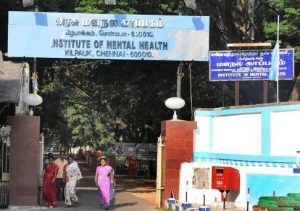By: Camisha Parkins
Journal of Global Rights and Organizations, Associate Articles Editor
INDIA – On September 1, 2021, the Supreme Court of India ordered all states and Union territories of the country to establish a system for facilitating vaccination against COVID-19 of all individuals residing in a mental health facility– including service providers, health care professionals, and all other associated staff. Each state must submit a progress report to the Department of Social Justice and the Ministry of Social Justice and Empowerment on or before October 15, 2021 explaining the steps taken and the number of people who have been vaccinated.
The outbreak of COVID-19 and the lockdown that followed exacerbated the long-standing inadequacies that already existed within India’s mental healthcare system. In the initial weeks of the lockdown, patients and doctors at mental health hospitals and institutions throughout India received very little support from central or state governments in battling the COVID-19 crisis, which placed patients and mental health professionals in imminent danger of the spread of the virus. Throughout the pandemic, hospitals were forced to turn away patients living with chronic mental illnesses who relied on hospitals due to lack of beds, staffing issues and the inability to provide sufficient medication. “Disabled people accessing health infrastructure, especially people with mental illness, were the last ones to be thought about,” said Anjlee Agarwal, founder of disability advocacy organization Samarthyam.

The Court’s order came in a contempt petition filed by advocate and petitioner-in-person in this case, Gaurav Kumar Bansal. Bansal accused states of disregarding a July 10, 2017 order from the Indian Supreme Court that required states and union territories to set up rehabilitation homes for mentally ill patients who remained in government-run mental health institutions despite being cured and ready for discharge. After reviewing status reports submitted by states and union territories following the July 2017 order, the Court said it “[did] not find that any genuine progress has been made… though different State Governments have indicated varying time lines for setting up the Halfway homes.” Accordingly, the bench of Justices led by Justice D.Y. Chandrachud mandated the establishment of halfway homes and rehabilitation homes for the mentally ill and directed the Ministry of Social Justice and Empowerment to establish an online dashboard that monitors the progress of the states and union territories. Information on the dashboard depicting the availability of institutions, facility provided, capacity, occupancy and region-wise distribution of halfway homes must be updated “on a real time basis.”
The bench, in making such court orders, noted that these problems involving people with mental health conditions “are of serious concern.” While this recent action by India’s Supreme Court counts as a major victory for advocates who work tirelessly in fighting for people with disabilities’ right to equal access to health care in India, ensuring that state governments take “appropriate and timely action” to meet the needs of people suffering with mental illnesses is of utmost importance. As Bansal stated, “We are just at the beginning of the battle… And we will keep fighting, together, until one day, people with psychosocial disabilities can live in dignity.”
For further information, please see:
Supreme Court of India – Gaurav Kumar Bansal vs. Mr. Dinesh Kumar & ORS – 1 Sept. 2021